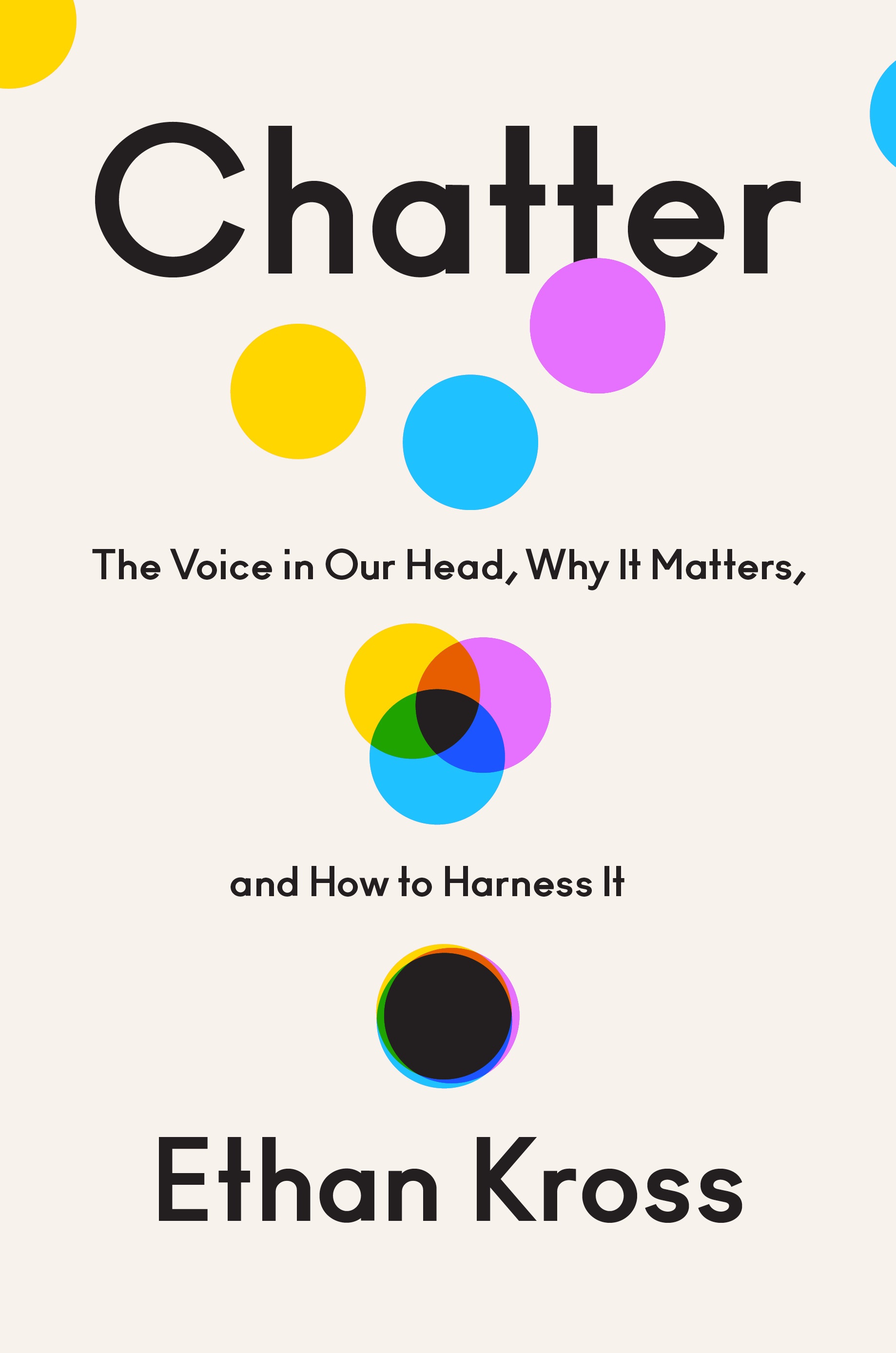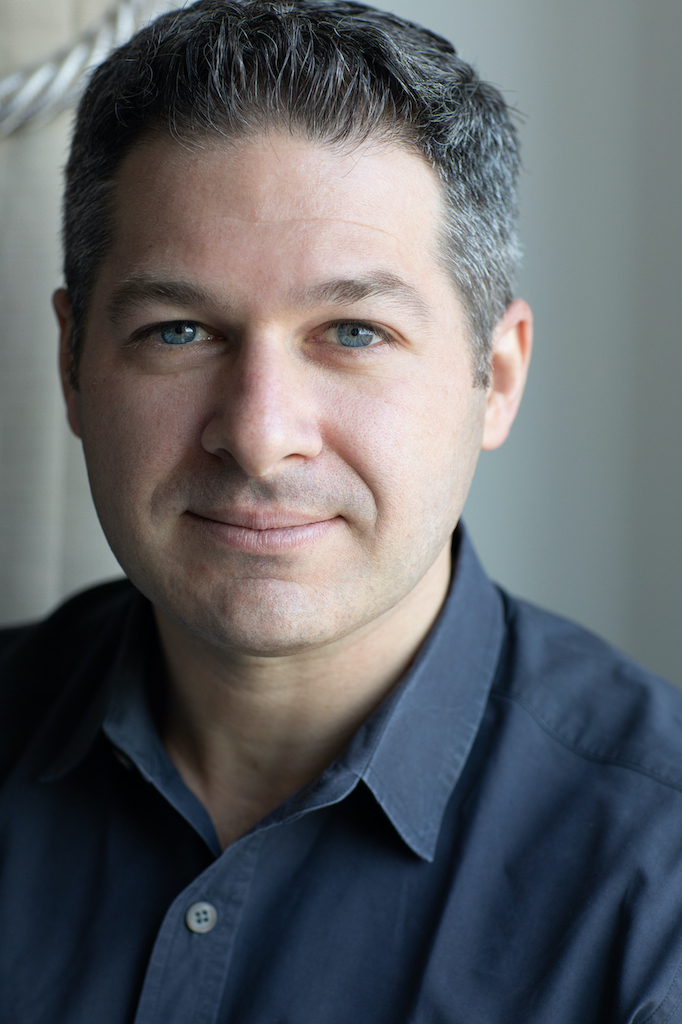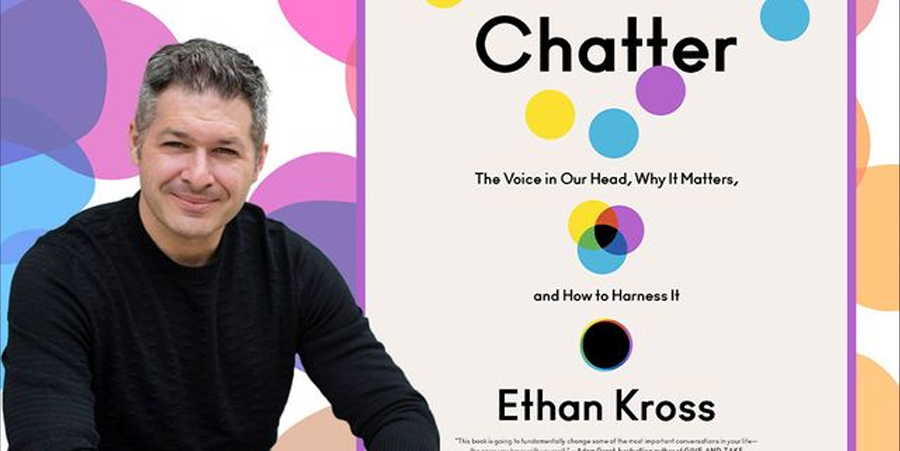Ethan Kross is an American experimental psychologist, neuroscientist and writer, who specializes in emotion regulation. He is a professor of psychology and management at the University of Michigan and director of the Emotion & Self Control Laboratory there. BrandKnew(published by ISD Global) engaged in an informal chat(ter) with Ethan to know more about emotion, self control and of course his new book CHATTER. Read on..
BK: Just a bit about your growing up years Ethan and who/what were the strongest influences growing up
EK: I grew up in Brooklyn, New York. When I graduated high school, I moved to Philadelphia to attend the University of Pennsylvania. After that, it was back to New York to attend Columbia University in Manhattan for my PhD. My strongest influence growing up was my dad.
BK: – What drove you to take up psychology, neuroscience and the study of neural systems as a career passion?
EK: Growing up, my dad and I spent a lot of time talking about the value of introspection — how focusing inward to work-through one’s problems was useful. When I got to college and took my first psychology class, I discovered that a lot of people struggle to introspect productively; they turn their attention inward to find solutions but end up worrying and ruminating instead. Understanding why introspection backfires and identifying tools people can use to manage their mind when it does became a passion.
BK: Emotions and Self Control – if one gets it right, there is no bigger stoic in the room, isn’t it? – share with us the journey of how you set up the Emotions and Self Control Lan at UMich and why?
EK: The lab at Michigan was a natural extension of my PhD work. As soon as I arrived in Ann Arbor, several students and colleagues were eager to join me in my quest to understand how to improve people’s ability to control their thoughts, feelings and behavior.The lab took shape organically and grew over time.

BK: Chatter has picked up a lot of chatter and purposefully provoked new thinking in the space – tell us a bit about the motivation behind writing the book and what your experience has been?
EK: Several years ago I was teaching a course that covered much of the material I write about in Chatter. On the final day of class, a student asked me why no one had taught her what we talked about during the semester earlier on in life given its potential to improve her life. That question really stuck with me after class ended. It motivated me to write Chatter to share what we’ve learned about how to harness the voice in our head with the world.
BK: Given where we are today, Proximity is redundant, distraction is omnipresent and noise overrides the signals- what contributes to chatter and what is a way out? If not, how does one minimise it?
EK: Chatter occurs when we zoom in so narrowly on a problem that we lose the ability to focus on the bigger picture, which often provides solutions to our predicaments. The good news is that there are many science-based tools people can use to prevent chatter and shorten its duration once it’s triggered. I talk about over two dozen such tools in my book.
BK: I loved the Rafael Nadal example you spoke about in the HBR IdeacastPodcast– could you elaborate a bit more for our audience?
EK: Nadal is famous for performing elaborate rituals—rigid sequences of behaviors that are infused with meaning—during tennis matches. During an interview he confessed that he engages in these rituals because they provide him with a sense of order and control that he often feels he lacks on the tennis court, where he’s constantly battling to manage his chatter. Nadals’s reliance on rituals to help manage his inner voice makes scientific sense. We know that when people experience chatter they often feel like they don’t have control. Performing a ritual, which is under your control, helps compensate for this experience by making us feel more in control of ourselves.
BK: Define the ‘ monkey mind ‘ for our audience Ethan
EK: The term, ‘monkey mind’ has different meanings for different traditions. Some use the term to capture the state of worrying and ruminating whereas others use it to describe not being able to sustain one’s attention. I use the term “chatter” to refer specifically to getting stuck in a negative thought loop. – FOMO, Status Anxiety, Collective Bias, Wisdom of the Crowds and all of that- do you see all of these compounding the noise in our heads?
Different people have different chatter triggers. That’s why I think it’s so important to inform people of the variety of science-based tools that exist for managing the noise — different combinations of tools may work for different people depending on their unique circumstances.
BK:Self control is one of the four key pillars(other than Courage, Wisdom & Justice) that stoic philosopher and Roman emperor Marcus Aurelius talks about in his writings- do you derive any insights or inspiration from his philosophy?
EK: Aurelius had great things to say about self-control as have countless other philosophers, spiritual figures and cultural figures throughout history. I derive insights and inspiration from many of them.
BK: Considering its huge importance and the lack of attention paid to it, do you think understanding well-being should be part of K-12 and University education?
EK: Absolutely.
BK: In a world where burnout is worn as a badge of honour and productivity is the be all and end all, how does one distill the noise from the signal?
EK: I continually ask myself whether the work I’m doing has the potential to either improve our understanding of how the human mind works or improve people’s lives. If I can answer “yes” to either of those questions, then I keep working :=).

BK: What are the books and readings that have moved and inspired you?
EK: Viktor Frankl’s Mans’ Search for Meaning.
BK: What does Ethan Kross do in his spare time?
EK: I love spending time with my wife and daughters. I also love cooking (the more extravagant the dish,the better),traveling to new places, bicycling, hiking, reading, and gardening.
ENDS
…
Seeking to build and grow your brand using the force of consumer insight, strategic foresight, creative disruption and technology prowess? Talk to us at +971 50 6254340 or mail: engage@groupisd.com or visit www.groupisd.com/story

